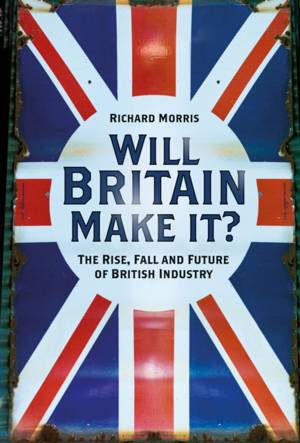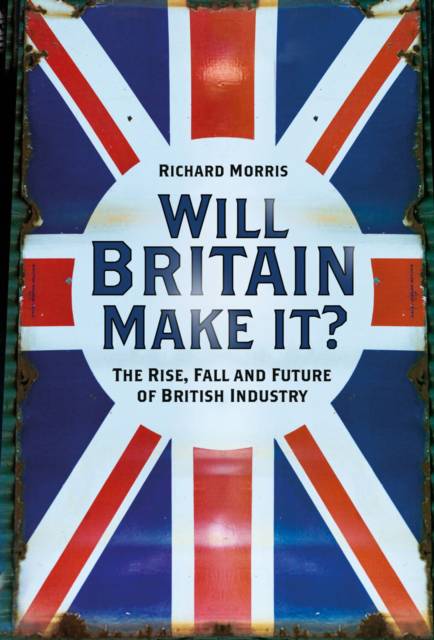
Bedankt voor het vertrouwen het afgelopen jaar! Om jou te bedanken bieden we GRATIS verzending (in België) aan op alles gedurende de hele maand januari.
- Afhalen na 1 uur in een winkel met voorraad
- In januari gratis thuislevering in België
- Ruim aanbod met 7 miljoen producten
Bedankt voor het vertrouwen het afgelopen jaar! Om jou te bedanken bieden we GRATIS verzending (in België) aan op alles gedurende de hele maand januari.
- Afhalen na 1 uur in een winkel met voorraad
- In januari gratis thuislevering in België
- Ruim aanbod met 7 miljoen producten
Zoeken
Will Britain Make It?
The Rise, Fall and Future of British Industry
Richard Morris
Hardcover | Engels
€ 27,95
+ 55 punten
Omschrijving
This fascinating book explores how some of Britain's leading companies failed, through a variety or mechanisms, against the backdrop of a declining national economy. IICI was for decades Britain's biggest manufacturer and exporter; GEC was Britain's biggest employer; and over half of the cars in the UK were once made by Morris Motors. Courtaulds dominated global cloth production and produced the first manmade fibres; BSA was the world's biggest producer of motorbikes; and de Havilland produced the first jet-engined fighter and passenger plane. But from the 1960s through to the 1990s, these and other illustrious British companies collapsed, taking with them nearly 200 years of industrial pre-eminence, as if Amazon, Google, Facebook, Apple, Toyota, VW and Samsung all buckled overnight. Why? The answers might surprise you. It's not because of the Chinese industrial revolution. Nor did Britain fall from the number one spot; it lost that over 120 years ago. This book explains what happened, and reflects on Britain's wider industrial legacy.
Specificaties
Betrokkenen
- Auteur(s):
- Uitgeverij:
Inhoud
- Aantal bladzijden:
- 272
- Taal:
- Engels
Eigenschappen
- Productcode (EAN):
- 9780750999922
- Verschijningsdatum:
- 15/01/2023
- Uitvoering:
- Hardcover
- Formaat:
- Genaaid
- Afmetingen:
- 156 mm x 234 mm
- Gewicht:
- 553 g

Alleen bij Standaard Boekhandel
+ 55 punten op je klantenkaart van Standaard Boekhandel
Beoordelingen
We publiceren alleen reviews die voldoen aan de voorwaarden voor reviews. Bekijk onze voorwaarden voor reviews.









